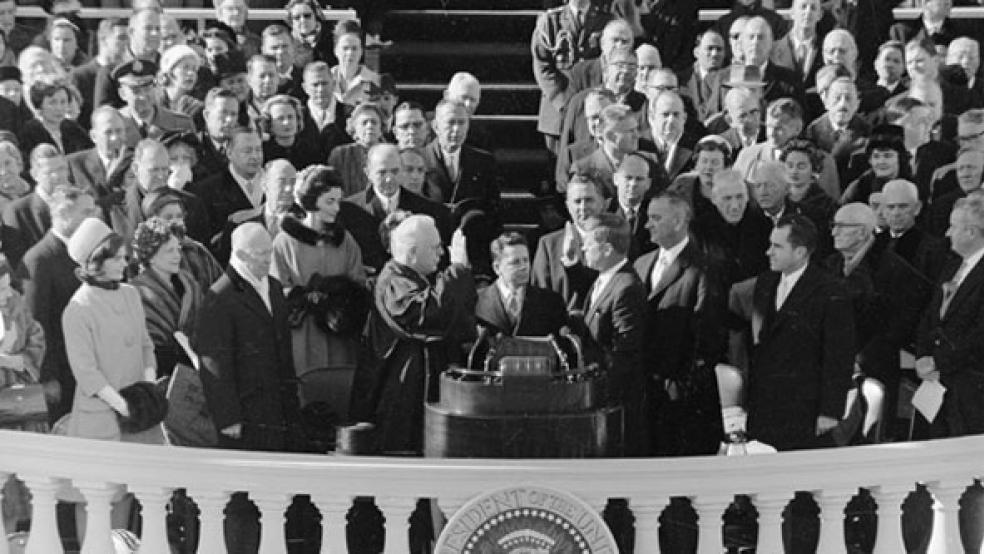Over the last 50 years, every American president has relied heavily on the legacy, memory and ideals of John F. Kennedy, that rare commander-in-chief who after his death became popular among Democrats and Republicans alike.
JFK is a pivotal figure of an older Washington where bipartisanship was the standard operating procedure. His assassination in Dallas on Nov. 22, 1963 has in large part helped to define each of his White House successors, according to the new book, The Kennedy Half Century, by University of Virginia political scientist Larry Sabato.
RELATED: 10 STATES THAT CAN ELECT THE NEXT PRESIDENT
The book entertains controversy about the moments before Kennedy’s death and the government reports that followed, but it leaves almost no doubt about the virtues of an era that ended with the young president’s death. The book—as with MSNBC host Chris Matthews’ “Tip and the Gipper”—recounts a period that seems to be lost as the country lurches into the third week of a government shutdown.
“Conjure up a time when government actually worked,” Sabato said Tuesday at the book’s launch in the Newseum at Washington.
But that period of faith in the government quickly eroded in the years after JFK’s death, with the suspicions of Washington only confirmed by the Warren Commission report—which made the case for Lee Harvey Oswald as the lone gunman—and the House Special Committee on Assassinations—which undermined the lone gunman argument.
Sabato called the investigations into JFK’s death a “Rorschach test about the government’s credibility, and the government has easily failed the test over the last 50 years.”
The Warren Commission—led by Supreme Court Chief Justice Earl Warren—failed to exhaustively marshal all of the available evidence and ignored any finding that raised doubts about Oswald acting alone, Sabato said.
The House committee relied on dictabelt recording from the Dallas Police Department, claiming that four gunshots could be heard over the course of eight seconds, a conclusion indicating that there was at least one other gunman. But analysis for Sabato’s book finds that the dictabelt did not, in fact, record the shots being fired, as the motorcycle carrying the microphone that became the basis of the dictabelt was not by the presidential motorcade at the fateful moment. The “long hoped for Rosetta stone of the Kennedy assassination is nothing of the sort,” Sabato said.
RELATED: WHICH FORMER PRESIDENT COSTS THE U.S. MOST?
Sabato noted that Kennedy rarely had adequate security, often putting himself in a position where the crowds could practically crush him. “It would have been a major miracle if JFK had gotten through two terms without one or more assassination attempts,” Sabato said.
Few presidents have endured as vividly in the public’s memory as JFK, a remarkable accomplishment given that he was only in the third year of his first term. Accompanying the book is polling about Kennedy, who enjoys a favorable reputation among both Democrats and Republicans.
Sabato notes that Ronald Reagan relied on JFK to sell his 1961 tax cut and Cold War foreign policy, a sign of just of fiscally conservative the Kennedy administration actually was. Bill Clinton tapped into Kennedy’s rhetoric to “capitalize on baby boomer nostalgia.” George W. Bush used the movie “Thirteen Days” about the Cuban missile crisis to foster a relationship with the late Sen. Ted Kennedy (D-MA), who then partnered with the administration for the 2001 No Child Left Behind law.
Geoff Garin, president of Hart Research Associates, which conducted the survey, said at the book launch that JFK continues to be as much of the public dialogue as President Obama. “It was as if we were talking to Americans about a contemporary politician,” he said.




